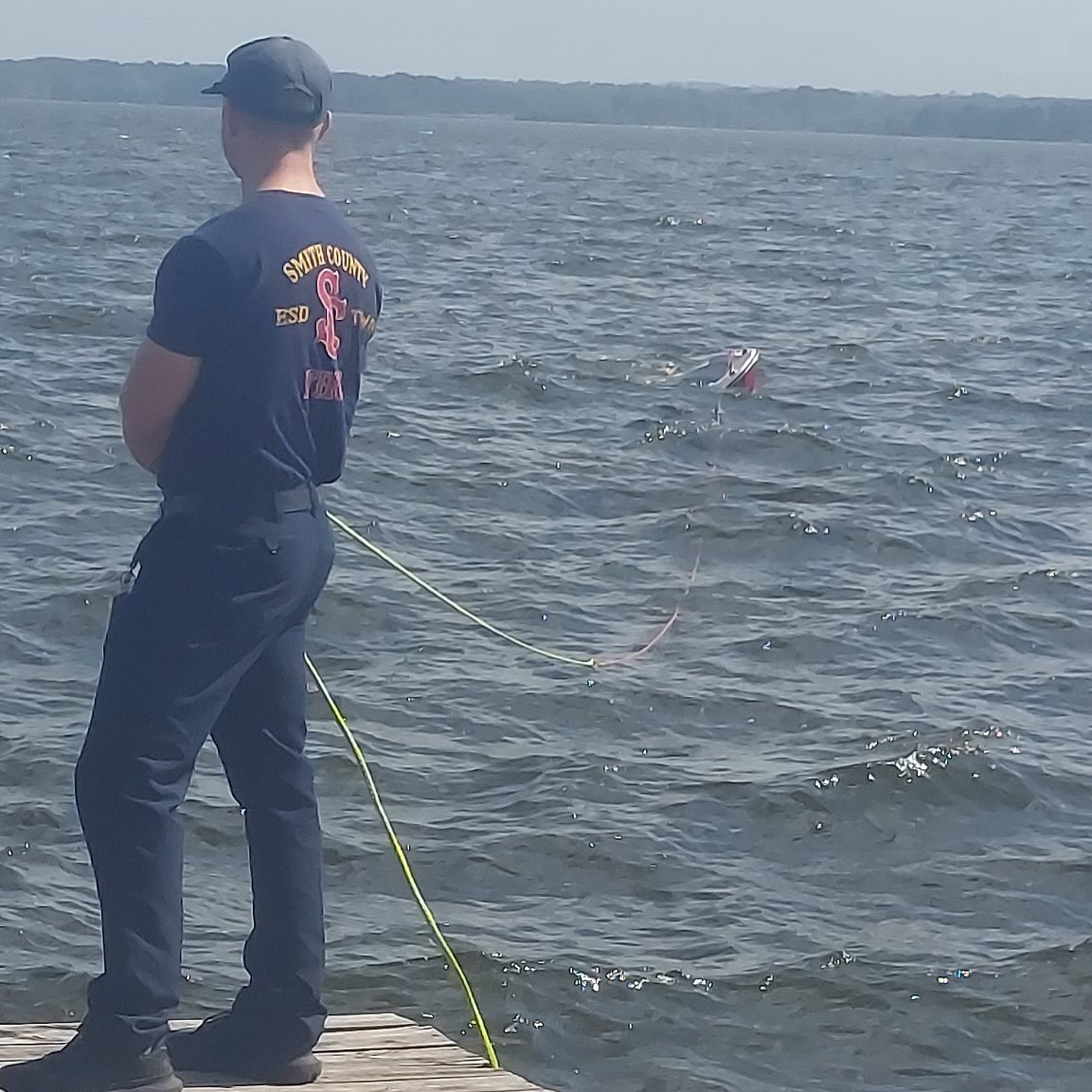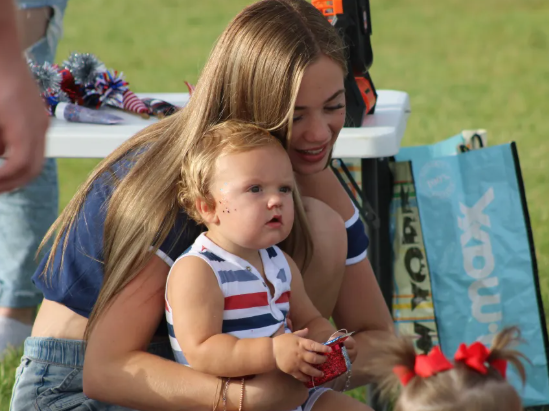‘Skills beyond the show ring’: Smith County Livestock Show teaches life lessons
Published 5:45 am Thursday, March 27, 2025

- Kirsten Lagrone, a Lindale sophomore, looks at the judge during the steer show at the Smith County Junior Livestock Show. (Katecey Harrell/ Tyler Morning Telegraph)
At first glance, it’s all about the livestock. But for those involved, the animals are just part of the story. The real focus is on raising responsible, hardworking young people.
“Our livestock shows are very important, and most people think it’s the livestock that makes it that way, that the livestock are the project, but really, our youth are the project,” said Skyler Shively, Smith County Junior Livestock Show board member.
More than 300 exhibitors are taking part in the 49th annual Smith County Junior Livestock Show, which opened Wednesday and continues through Friday at the Cross Brand Cowboy Church arena. Students are showing animals and competing in home economics, photography and public speaking contests, and are being interviewed for scholarships.
The show has grown significantly. In the last four years, the numbers have nearly doubled, Shively said. The event was presented by Peltier Chevrolet, Credit Union of Texas, Wayne Sanderson Farms, and Aaxion Inc.
Three generations of 16-year-old Shiloh Smith’s family have shared a strong connection to agriculture. “My great-great-grandpa, he homesteaded,” Smith said. Her brother and sister also showed livestock during their high school years, sparking her own interest in the tradition.
“Agriculture is, of course, a big aspect in everything that we do, and agriculture touches everything that we’re involved in,” Smith said. “That’s kind of what really introduced me into getting involved within the industry, basically the community that is all surrounding everyone.”
As a livestock ambassador for Texas 4-H, Smith has the opportunity to travel across the state, advocating for livestock and agriculture. She speaks to both youth and adults about the importance of the industry and educates them on where their food comes from.
Smith said 57.7% of people don’t fully understand the labels on their food. She speaks at HEB grocery stores in San Antonio and College Station, talking to shoppers about paying attention to the words on the labels and what they really mean. She also teaches them about where their food comes from and encourages them to be smarter, more informed consumers.
In addition, Smith is involved in the Norman Borlaug Youth in Agriculture Program, where she works with others to develop solutions to critical agricultural issues, such as food insecurity, water scarcity and farmland fragmentation.
Thursday, she was also showing her lamb, continuing her hands-on involvement in the field.
“It’s almost like our sport,” Smith said. “Most athletes, they know that adrenaline pumping, that feeling, those butterflies in your stomach, and that’s kind of what we feel leading up to the show, especially within that show ring, you get a few seconds, that’s all you get.”
In that short time frame, exhibitors have to show everything they’ve worked on with the animal. Every second counts, and those minutes are very important. It’s stressful, but in the end, it’s a lot of fun.
Junior Cobey Sawyer, a member of Chapel Hill High School FFA, grew up in a family with jobs in auto mechanics and the oil field. Even though his family didn’t have much to do with agriculture, he always loved it because he grew up surrounded by ranches.
“I always told my dad I was always gonna get into the FFA and [agriculture] world,” Sawyer said.
Getting into agriculture has taught him a lot. It’s a whole new world with new opportunities, and every day he learns something new, he said. He is involved in many activities, including being part of the Livestock Judging Team, which has helped him when showing animals, as it allows him to pick the best one by evaluating its structure before making a purchase.
He’s showing pigs and chickens at the Smith County Junior Livestock Show. He explained it takes a lot of hard work, patience and dedication, something he has learned from great mentors. Through this experience, he has learned how to care for animals and improve their meat quality.
Smith said the animals get the highest quality of care, saying they are treated like “the Kardashians” of the livestock world. They receive special attention and are well taken care of.
Showing livestock also means providing them with a longer, healthier life. The animals have owners who care for them, feed them daily and form strong bonds with them. Though it’s hard to say goodbye to these animals, everyone understands the importance of their role in providing food for people, and that responsibility makes it easier to part with them.
These types of programs teach kids a strong work ethic, including early mornings and late nights, and how to adapt to situations quickly, do interviews and talk to people from different backgrounds.
Smith said it isn’t just about animals; it teaches important life skills beyond the show ring.
Ag kids are patient and willing to work hard to get results, Sawyer said. He believes agriculture is the most patient and hardworking field because it’s about growing food or raising animals to feed people. People outside of agriculture don’t always understand this and want quick results.
FFA teaches that quick results aren’t always the best; the long process and the final goal are what lead to the best outcomes, as shown in the animals they raise.
Through their livestock projects, like showing poultry, swine, sheep, goats and cattle, as well as horticulture and home economics projects, kids are learning important skills like integrity and teamwork. This is a great opportunity for them to showcase all their hard work, Shively said.
The end goal of the livestock competition is the sale of champions, an auction event where top animals are sold to buyers, but the main focus is on supporting the youth. Only the top 50% of participants in each category are eligible for the sale.
Thanks to the generosity of the community, last year’s sale of champions raised around $250,000, all of which was reinvested back into the youth, helping them continue their journey in agriculture and beyond.
Shively said that in more urban areas like the metroplex, youth engagement can drop, but here, they are fortunate to have kids who still understand the importance of agriculture and where their food comes from.
“In East Texas, livestock shows certainly hit close to home,” Shively said. “We have such a rich [agricultural] history and such strong roots in agriculture, livestock shows are exceptionally large, and we love to see that we get great community support because of that.”
The Smith County Junior Livestock Show runs through Friday, with the Sale of Champions happening at 1 p.m. that afternoon.






